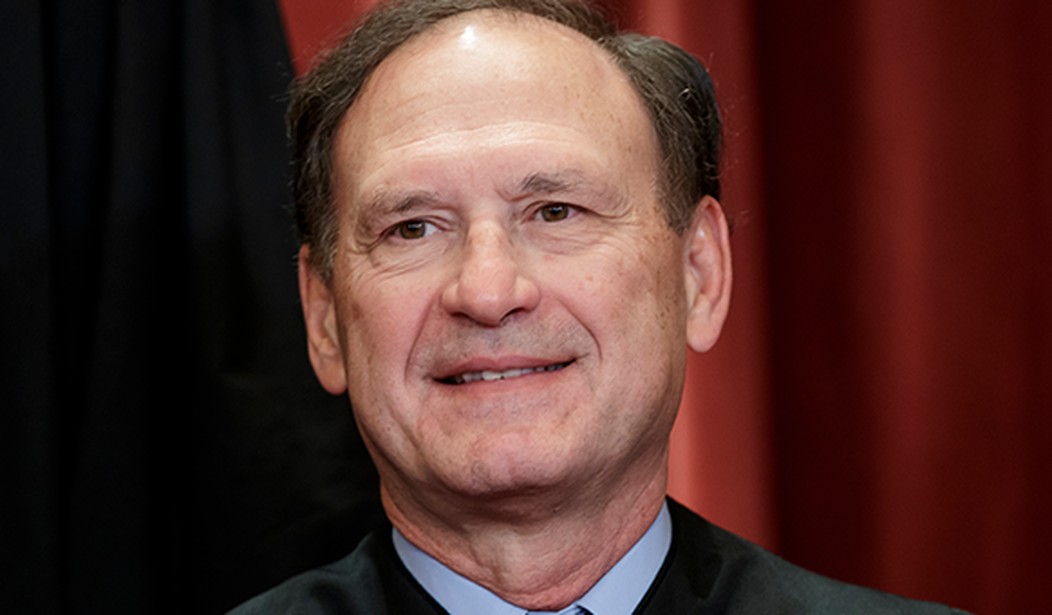During a keynote address to the Federalist Society on Thursday, Justice Samuel Alito spoke of the "unimaginable restrictions on individual liberty" that have taken place during the coronavirus pandemic.
He further warned that religious liberty is "in danger of becoming a second-class right."
Alito pointed to cases where COVID-19 restrictions "blatantly discriminated against houses of worship," such as in Nevada, where the state "was unable to provide any justification for treating casinos more favorably than other houses of worship."
What happened in Nevada proved to be part of a broader trend, he argued.
The foremost example of this disfavor in the justice’s mind was the court’s 1990 decision in Employment Division v. Smith, written by Justice Antonin Scalia, which “cut back sharply” on free exercise by establishing that religious groups are usually not entitled to faith-based exemptions from neutral, generally applicable laws. Alito lauded Congress for passing, with near unanimous support, the Religious Freedom Restoration Act of 1993 to push back against this very decision. The Supreme Court is considering whether to overrule Smith this term in Fulton v. City of Philadelphia. And the afternoon of Alito’s speech, the Catholic diocese in Brooklyn asked the court for emergency relief from New York’s coronavirus regulations similar to that previously sought by Calvary Chapel in Nevada. (SCOTUSblog)
Questioning "whether our society will be inclusive enough to tolerate those with unpopular religious beliefs," he highlighted other recent examples such as "the protracted campaign against the Little Sisters of the Poor," Masterpiece Cakeshop, and the Ralph’s pharmacy case.
Recommended
"You can easily see the point, for many today, religious liberty is not a cherished freedom, it’s often just an excuse for bigotry and it can’t be tolerated, even when there is no evidence that anybody has been harmed. And the cases I just mentioned illustrate the point," he said. "As far as I'm aware, not one employee of the Little Sisters has come forward and demanded contraceptives under the Little Sisters' plan. There was no risk that Ralph’s referral practice would have deprived any woman of the drug she sought and no reason to think that Jack Phillips' stand would deprive any same-sex couple of a wedding cake. The couple that came to his shop was given a free cake by another bakery, and celebrity chefs have jumped to the couple’s defense."
The First Amendment was not all that was on Alito's mind, however.
“The ultimate second-class right in the minds of some is the Second Amendment,” the justice said. Looking to a case last term about firearm restrictions in New York City, Alito singled out a brief by five Democratic senators that suggested the court’s decision to take the case was evidence of its capture by moneyed right-wing interests and threatened to “restructure” the court. The justices voted to dismiss the case rather than rule on the merits. Although he was “not suggesting that the court’s decision was influenced by the senators’ threat,” Alito was “concerned that it might be viewed that way” by the senators and others who want to “bully” the justices. “The senators’ brief was extraordinary,” Alito continued. “It was an affront to the Constitution and the rule of law.” (SCOTUSblog)
Reflecting on his 15 years on the court, Alito said much "good work has been done to protect freedom of speech, religious liberty, and the structure of government created by the Constitution."
Ultimately, however, defending the Constitution is not in the hands of the judiciary alone. "For all Americans, standing up for our constitution and our freedom is work that lies ahead," he said in conclusion.
And "it will not be easy work."

























